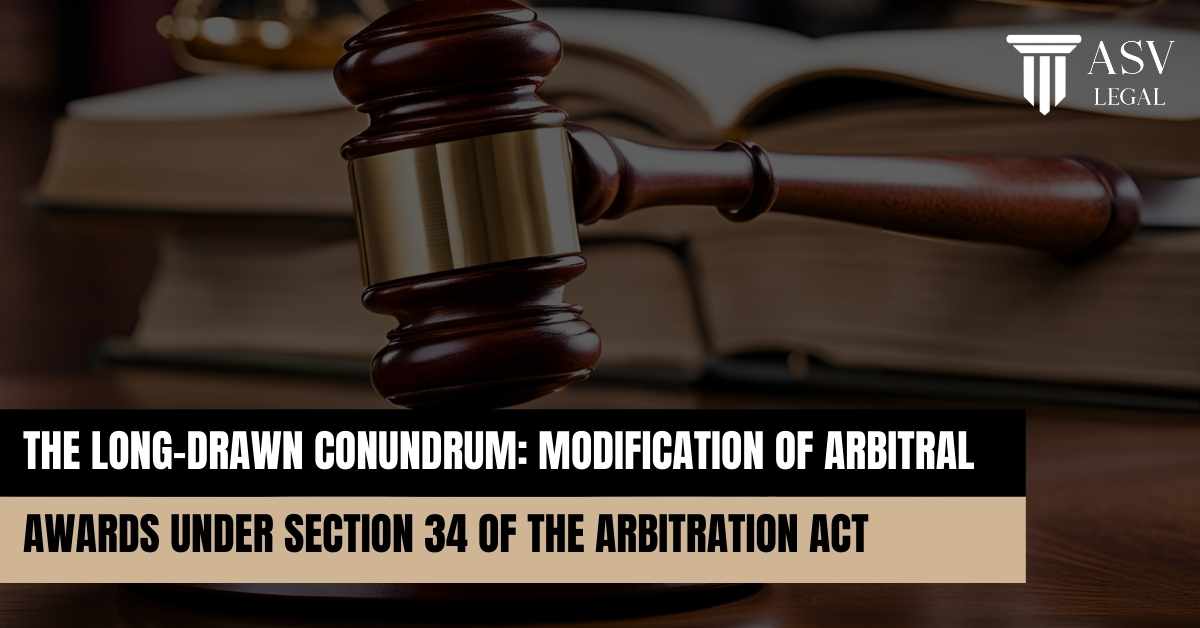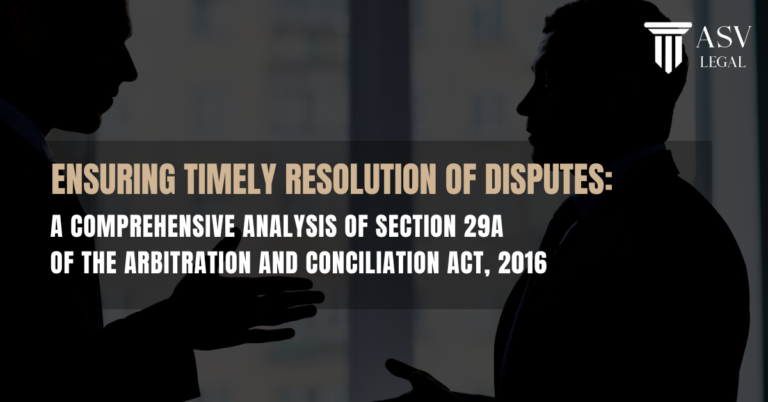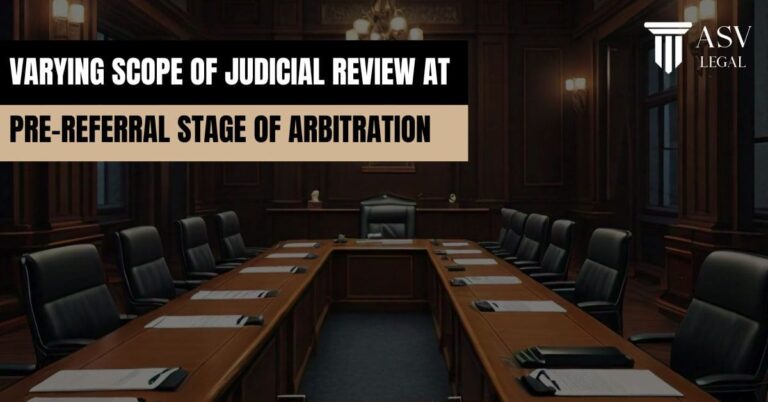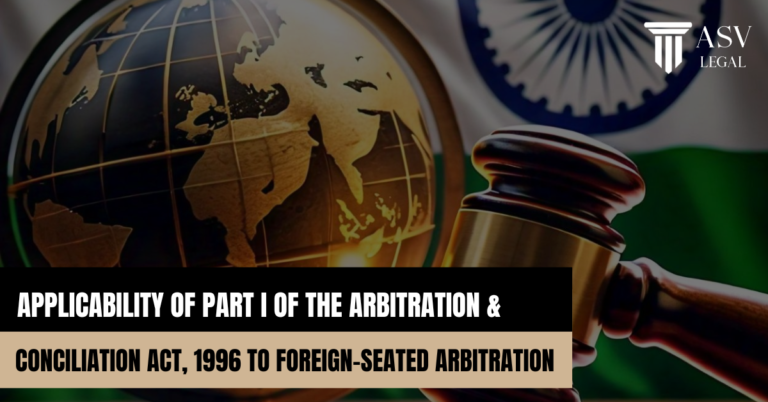Written By: Ayushi Mishra
I. Introduction
Recently, a three-judge Bench of the Hon’ble Supreme Court of India, in the case of Gayatri Balasamy v. M/s ISG Novasoft Technologies Limited, referred a significant and debated issue to a Constitution Bench. The matter in question is whether courts, when exercising their powers under Section 34 of the Arbitration and Conciliation Act, 1996 (the “A&C Act”), have the authority to “modify” arbitral awards.
This referral stems from conflicting judicial decisions. On one hand, the Supreme Court has previously ruled that modifying an arbitral award is not permitted under the A&C Act. On the other hand, various High Courts have either modified awards themselves or upheld modifications made by lower courts.
It is essential to address the ongoing legal debate concerning the interpretation of “modification” in the context of arbitral awards and how it differs from the partial setting aside of an award, as highlighted in various judgments on this issue.
Interplay Between Partial Setting Aside and Modification
In the case of M/s NHPC Ltd. v. M/s Jaiprakash Associates Ltd.[1], the Delhi High Court addressed the issue of partially setting aside an arbitral award. The Court held that such partial setting aside is valid as long as the portion of the award being set aside is independent and severable from the rest of the award. This means it can be removed without compromising the integrity of the remaining parts. The Court also clarified that when the power under Section 34 of the A&C Act is used to partially set aside an award, it does not amount to modifying or altering the entire award.
The Court underscored the importance of maintaining a clear distinction between the concepts of modification and partial setting aside. It stressed that partial setting aside should not interfere with the unaffected portions of the award. Additionally, the Court clarified that the term “modify” refers to altering or adjusting the ultimate relief granted by an Arbitral Tribunal.
The power granted under Section 34 of the A&C Act is strictly confined to the annulment or setting aside of the problematic portion of an arbitral award. This was similarly affirmed by the Delhi High Court in MBL Infrastructures Ltd. vs. Delhi Metro Rail Corporation[2].
In contrast, the Hon’ble Supreme Court of India, in National Highway Authority of India v. M. Hakeem & Anr.[3] (the “Hakeem case”), ruled that courts do not have the authority to modify an arbitral award. The only remedy available under Section 34 of the A&C Act is to set aside the award if it meets the criteria specified in the section. This principle from the Hakeem case was reaffirmed in Dakshin Haryana Bijli Vitran Nigam Limited v. Navigant Technologies Private Limited[4] (the “Dakshin case”) and Larsen Air Conditioning and Refrigeration Company v. Union of India & Ors.[5] (the “Larsen case”).
In the recent case of SV Sundaram v. State of Karnataka[6] (the “Sundaram case”), the Hon’ble Supreme Court reaffirmed the principles laid out in the Hakeem case, stating that when exercising their powers under Section 34 of the A&C Act, courts must not overstep the “Lakshman Rekha” by modifying an arbitral award.
Adding complexity to the issue, the Supreme Court has repeatedly invoked Article 142 of the Constitution of India to ensure “complete justice,” which has occasionally involved modifying arbitral awards[7].
The Road Ahead
Given these conflicting judicial positions, a three-judge Bench of the Hon’ble Supreme Court has referred the issue to a Constitution Bench for a definitive resolution. Additionally, the Viswanathan Committee has suggested an amendment to the A&C Act, which would grant courts the power to partially modify arbitral awards in exceptional circumstances. However, the lack of a clear definition of “exceptional circumstances” remains a significant concern, potentially leading to further ambiguities in applying this proposed amendment.
It is crucial to recognize that granting the power to modify arbitral awards could make the arbitration process more cumbersome and prolonged for litigants. The exercise of powers under Section 34 of the A&C Act should be reserved for truly exceptional cases, and the “modification” of an award does not typically fall within such exceptional powers.
Nonetheless, in situations where the power to modify has been used, it has often been aimed at ensuring the swift resolution of disputes. Whether the Court will invoke its curative powers to modify an arbitral award under its authority to set aside awards under Section 34 of the A&C Act remains to be seen.
[1] 2023 SCC Online Del 3294
[2] 2023 SCCOnline Del 8044
[3] 2021 (9) SCC 1
[4] 2021 (7) SCC 657
[5] 2023 SCC Online 982
[6] [2024] 1 SCR 281
[7] Reference may be made to Vedanta Ltd. v. Shenzhen Shandong Nuclear Power Construction Company Ltd., (2019) 11 SCC 465, MP Power Generation Ltd. Ansaldo Energia Spa (2018) 16 SCC 661, Oriental Structural Engineers Pvt. Ltd. v. State of Kerala, (2021) 6 SCC 150 and Shaktinath & Ors. v. Alpha Tiger Cyprus Investment no. 3 Limited & Ors., (2020) 11 SCC 685.




